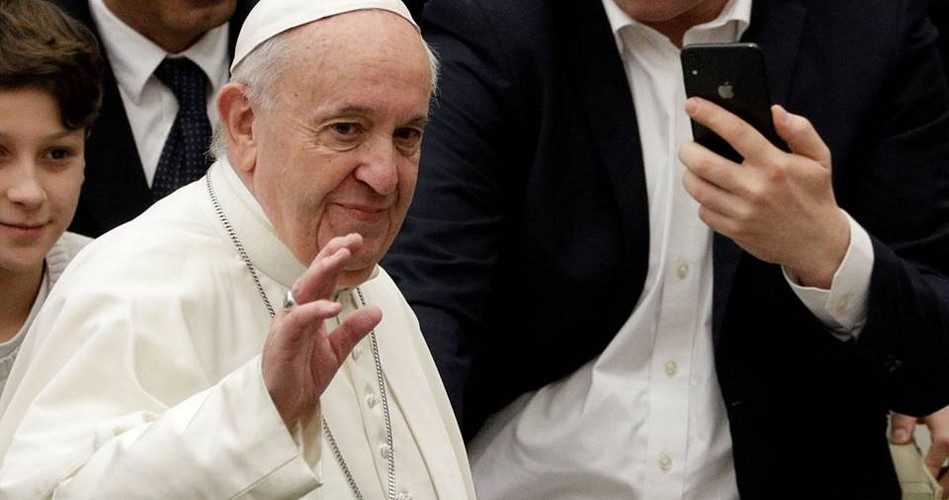
In an address to the New Forms of Solidarity Seminar on Wednesday, Pope Francis made a call for worldwide wealth redistribution in order solve the problem of global poverty. The Pope referred to tax cuts for the wealthy as a “structure of sin.” The speech was organized by the Pontifical Academy for Social Sciences.
In what sounded more like a document written by the United Nations than a Papal address, the Pope tore into the economic systems of the world and what he called “tax havens.” He declared that such monies need to be used to assist those in extreme poverty, whom the Pontiff claims are increasing.
“The world is rich and yet the poor increase around us,” the Pope said. “Hundreds of millions of people are still mired in extreme poverty and lack food, housing, medical care, schools, electricity, drinking water and adequate and essential sanitation services.”
Citing the UN’s Sustainable Development Goals — a portion of the UN’s Agenda 2030 — the Pope appeared to call for a redistribution of wealth to address the issue of extreme poverty in the world. “The Sustainable Development Goals, unanimously approved by all nations also recognize this point — it is a human point — and call on all peoples to ‘help developing countries achieve long-term debt sustainability through coordinated policies aimed at promoting debt financing, debt relief and debt restructuring, as appropriate, and addressing the external debt problem of heavily indebted poor countries to reduce debt distress.’”
The Catholic leader also criticized certain banking practices, believing that they lead to wealth inequality and the hiding of money which could be used for more humanitarian purposes. “Every year, hundreds of billions of dollars, which should be paid in taxes to finance medical care and education, accumulate in tax haven accounts thus preventing the possibility of decent and sustained development of all social actors.”
Referring to tax cuts, the Pontiff didn’t mince words. “Sin structures today include repeated tax cuts for the richest people, often justified in the name of investment and development; tax havens for private and corporate profits; and, of course, the possibility of corruption by some of the largest companies in the world, not a few times in tune with some ruling political sector.”
Pope Francis even linked the issue of wealth inequality to many of the evils of this modern world. “This situation has led to millions of people being victims of trafficking and new forms of slavery, such as forced labor, prostitution and organ trafficking.”
Several times during his speech, Pope Francis repeated his assertion that the “poor increase around us.”
While the Pope is not wrong about many people being in need, he may have a few of the basic facts wrong. While extreme poverty will never be fully vanquished — “For ye have the poor always with you,” as Jesus said in Matthew 26:11 — statistics show that the percentage of people in extreme poverty (defined as living on $1.90 or less per day) has dropped significantly since 1990, when more than a quarter of the world’s population lived in such straits. Even the UN admits that today, less than 10 percent of the world’s population subsists in such dire straits.
That is still too many people in poverty, obviously, but a contradiction to the Pope’s assertion that extreme poverty is increasing.
In addition, World Vision reports that the number of deaths from preventable causes such as poverty, hunger, and disease is less than half of what it was only a few decades ago. In 1990, more than 35,000 children a day died from such causes. Today, that number is under 15,000 per day.
If you go back even further in time, poverty was much worse than it is today. In 1800, close to 90 percent of the world’s population was living in impoverished conditions. In 1900, it was close to 70 percent, and at the end of World War II it was still 55 percent.
So global poverty is not getting worse as Pope Francis suggests. It’s getting better — albeit slowly. While it might not be improving at a quick enough pace for the Vatican, poverty is being eradicated, and it’s being done by a free and open market — not by socialism; and certainly not by any UN decree.
Photo: AP Images
James Murphy is a freelance journalist who writes on a variety of subjects, with a primary focus on the ongoing anthropogenic climate-change hoax and cultural issues. He can be reached at [email protected].




